Assange on "coming dystopia", and ways to fight it
Thursday, 20.12.2012.
14:01

Assange on "coming dystopia", and ways to fight it Q: (At the beginning of the "Cypherpunks" you are warning that) why is the internet a threat to the human civilisation? Assange: As human societies have moved into the internet, the internet has also moved into our human societies. Our interpersonal, business and state communications are meshed with the internet now in the same way like our bodies are meshed with our veins and arteries. A sickness that befalls internet befalls our societies individually and all societies together. That sickness that approaches is on a one hand mass surveillance of all telecommunication traffic flowing through the internet, all our financial transactions, intellectual ideas, interpersonal relationships, and on the other hand new regimes to control these flows of information, to control the very blood of international human civilisation. Q: (If intelligence services are trying to "slow down the processes in order to better control it") what can be done to make the internet a tool of emancipation again? Assange: First of all we must be aware of the coming dystopia. As a result of that awareness we must change peoples’ behaviour so that collectively we can come up with ideas how to fight it. That is a matter of political awareness and self-knowledge. Practically there are just two measures for dealing with this problem that we have discovered to date. The first is adopting our communications to the risk that actually exists – that is being more circumspect with our online communication and relationships we express with each other; being aware that all this information is being collected by large states such as the United States and given out to not only its governmental agencies, but also corporate cronies who are connected in a patronage manner or a technical manner to those large spying agencies and also to other states who have allied relationship to them. The other is by adopting the technology of cryptography, which provides protection when done correctly against even the strongest state. It is unusual feature of the world that even the full political and technological mind of the superpower cannot solve a math problem that has been created by cryptography, when it has been done right. Q: What are the dangers for privacy and citizens' rights? Assange: This development in general is leading to a new transnational dystopia the likes of which we have never previously seen. It affects not just one country in one region, but rather every country in every region. It affects all countries at once because every country is moving on to the internet. It is the greatest theft in human history. For example in the case of the National Security Agency, the largest state based spying agency, based in the United States, it has admitted to Congress to intercepting more than 1.6 billion interceptions per day. That is an undreamt of a transfer of knowledge and power from the majority of the population into the hands of small powerful, secretive group and its serenistic connections. Q: You say that our private lives have been militarised and that when we are for example SMSing it is like having a tank in between us, how can we remove the tank? legal solutions seemed to be inefficient. Assange: The militarisation of our human relationships is a result of militarisation of cyber space. The mass surveillance of nearly all internet communications that flow across international borders, and some countries, that flow around country domestically as well. That places the military and national security agencies, between husbands and wives, between fathers and daughters, between sons and mothers, between friends, between our business relationships, between our political relationships. This is like having a soldier sleeping under the bad, listening into every endearment sent over internet chat or email or sms or telephone call. This is not nearly a matter of pacification, rights are always fought for and won, it is a matter of steering down this military occupation of cyber space with organised political movement and of correctly arming that movement. And the only arms that have any value at the internet are cryptographic arms. Q: Besides surveillance another big threat to our freedom is protecting our privacy, what can we do if "Google or Facebook know more about us than ourselves"? Assange: That’s the real question, what can you do if Google and Facebook know more about you than even your mother does? Google for example knows what you’ve searched for one year, two months, three days ago, but you yourself don’t even know this. So therefore there is very little you can do, that powerful states or their corporate allies won’t know about you in advance, and therefore this is not just matter for you. It is a matter for all those people that you have communicated with and for all those people you would engage with in by actions with. So actually if they know there is not so much that you can do, and if there is not so much you can do your freedom is curtailed and that of all the people around you and that of all our societies. The only way to be free is to prevent these organisations from knowing either who you are or what it is you are communicating. And to do this it is necessary to use cryptography to take the power back to us as individuals and to deny these organisations and there companions the power that knowledge brings. Q: You are reminding of Orwell's dictum "He who controls the present controls the past and he who controls the past controls the future" when saying our past is not only being amended, but being erased? What this means for our future? Assange: The redaction of history in the Great Soviet Encyclopaedia is famous. For example in 1954 when Beria the former Head of the NKVD, the predecessor to the KGB, fell out of favour his entry in the encyclopaedia was redacted and an addendum was pasted out to all the registered owners and libraries that held that encyclopaedia with an expanded section with a Bering Strait to be pasted in over the top. Such modifications were obvious. In cyber space when articles are deleted from newspaper or other online archive they disappear without trace. They not only cease to exist, they cease to have ever existed at all. They are removed because people are trying to control the future by modifying the present, to remove the past. There are answers to this. First of all we must be aware that this practice occurs from time to time, even in the newspapers of the West, such as the Guardian and the New York Times. Secondly, cryptography has an answer. It is possible to create an algorithm which squashes down any newspaper article into a completely unique number and if newspaper article is changed the number itself will change and no other newspaper article may have the same number. This cryptographic property is just in its infancy of being deployed to make sure that digital archives do not change under our feet, that history does not change under our feet. If done properly we can build a rigorous scaffold of history that cannot be changed by politically powerful players into the future. Q: Having in mind your current situation would you do the same again? Assange: Yes, I am very proud of what we have achieved. Of course, any person that is not a fool learns to improve the tactics over time. We all have a limited number of days to live and it is important that we live them fully and in accordance with our principles. To live in any other way is to throw our days away. Q: The issues of freedom of information, data protection, opening secret records, privacy are at the beginning, what would be your message to Albion Books and all your readers in Serbia? Assange: The last two years has seen extraordinary political radicalisation of societies that has been connected to the internet because the internet itself is going through a remarkable educational transformation of the people who use it. In some societies this has already produced revolutions and tremendous reforms. It is an era of unprecedented, above all, political education. At the same time the reaction is to introduce mass surveillance of internet communications. These are the two forces that will shape our future. They will shape our place in it, they will shape every aspect of it. Together we will fight for our liberty and our place in this new world. We are not certain to win, but there is no other way for us to be. Julian Assange (Beta/AP, file) The exclusive interview that Julian Assange gave to his Serbian publisher, Albion Books from Belgrade "I am very proud of what we have achieved. Of course, any person that is not a fool learns to improve the tactics over time. We all have a limited number of days to live and it is important that we live them fully and in accordance with our principles."
Assange on "coming dystopia", and ways to fight it
Q: (At the beginning of the "Cypherpunks" you are warning that) why is the internet a threat to the human civilisation?Assange: As human societies have moved into the internet, the internet has also moved into our human societies. Our interpersonal, business and state communications are meshed with the internet now in the same way like our bodies are meshed with our veins and arteries. A sickness that befalls internet befalls our societies individually and all societies together.
That sickness that approaches is on a one hand mass surveillance of all telecommunication traffic flowing through the internet, all our financial transactions, intellectual ideas, interpersonal relationships, and on the other hand new regimes to control these flows of information, to control the very blood of international human civilisation.
Q: (If intelligence services are trying to "slow down the processes in order to better control it") what can be done to make the internet a tool of emancipation again?
Assange: First of all we must be aware of the coming dystopia. As a result of that awareness we must change peoples’ behaviour so that collectively we can come up with ideas how to fight it. That is a matter of political awareness and self-knowledge. Practically there are just two measures for dealing with this problem that we have discovered to date.
The first is adopting our communications to the risk that actually exists – that is being more circumspect with our online communication and relationships we express with each other; being aware that all this information is being collected by large states such as the United States and given out to not only its governmental agencies, but also corporate cronies who are connected in a patronage manner or a technical manner to those large spying agencies and also to other states who have allied relationship to them.
The other is by adopting the technology of cryptography, which provides protection when done correctly against even the strongest state. It is unusual feature of the world that even the full political and technological mind of the superpower cannot solve a math problem that has been created by cryptography, when it has been done right.
Q: What are the dangers for privacy and citizens' rights?
Assange: This development in general is leading to a new transnational dystopia the likes of which we have never previously seen. It affects not just one country in one region, but rather every country in every region. It affects all countries at once because every country is moving on to the internet. It is the greatest theft in human history. For example in the case of the National Security Agency, the largest state based spying agency, based in the United States, it has admitted to Congress to intercepting more than 1.6 billion interceptions per day. That is an undreamt of a transfer of knowledge and power from the majority of the population into the hands of small powerful, secretive group and its serenistic connections.
Q: You say that our private lives have been militarised and that when we are for example SMSing it is like having a tank in between us, how can we remove the tank? legal solutions seemed to be inefficient.
Assange: The militarisation of our human relationships is a result of militarisation of cyber space. The mass surveillance of nearly all internet communications that flow across international borders, and some countries, that flow around country domestically as well. That places the military and national security agencies, between husbands and wives, between fathers and daughters, between sons and mothers, between friends, between our business relationships, between our political relationships.
This is like having a soldier sleeping under the bad, listening into every endearment sent over internet chat or email or sms or telephone call. This is not nearly a matter of pacification, rights are always fought for and won, it is a matter of steering down this military occupation of cyber space with organised political movement and of correctly arming that movement. And the only arms that have any value at the internet are cryptographic arms.
Q: Besides surveillance another big threat to our freedom is protecting our privacy, what can we do if "Google or Facebook know more about us than ourselves"?
Assange: That’s the real question, what can you do if Google and Facebook know more about you than even your mother does? Google for example knows what you’ve searched for one year, two months, three days ago, but you yourself don’t even know this. So therefore there is very little you can do, that powerful states or their corporate allies won’t know about you in advance, and therefore this is not just matter for you. It is a matter for all those people that you have communicated with and for all those people you would engage with in by actions with.
So actually if they know there is not so much that you can do, and if there is not so much you can do your freedom is curtailed and that of all the people around you and that of all our societies. The only way to be free is to prevent these organisations from knowing either who you are or what it is you are communicating. And to do this it is necessary to use cryptography to take the power back to us as individuals and to deny these organisations and there companions the power that knowledge brings.
Q: You are reminding of Orwell's dictum "He who controls the present controls the past and he who controls the past controls the future" when saying our past is not only being amended, but being erased? What this means for our future?
Assange: The redaction of history in the Great Soviet Encyclopaedia is famous. For example in 1954 when Beria the former Head of the NKVD, the predecessor to the KGB, fell out of favour his entry in the encyclopaedia was redacted and an addendum was pasted out to all the registered owners and libraries that held that encyclopaedia with an expanded section with a Bering Strait to be pasted in over the top. Such modifications were obvious. In cyber space when articles are deleted from newspaper or other online archive they disappear without trace. They not only cease to exist, they cease to have ever existed at all. They are removed because people are trying to control the future by modifying the present, to remove the past.
There are answers to this. First of all we must be aware that this practice occurs from time to time, even in the newspapers of the West, such as the Guardian and the New York Times. Secondly, cryptography has an answer. It is possible to create an algorithm which squashes down any newspaper article into a completely unique number and if newspaper article is changed the number itself will change and no other newspaper article may have the same number. This cryptographic property is just in its infancy of being deployed to make sure that digital archives do not change under our feet, that history does not change under our feet. If done properly we can build a rigorous scaffold of history that cannot be changed by politically powerful players into the future.
Q: Having in mind your current situation would you do the same again?
Assange: Yes, I am very proud of what we have achieved. Of course, any person that is not a fool learns to improve the tactics over time. We all have a limited number of days to live and it is important that we live them fully and in accordance with our principles. To live in any other way is to throw our days away.
Q: The issues of freedom of information, data protection, opening secret records, privacy are at the beginning, what would be your message to Albion Books and all your readers in Serbia?
Assange: The last two years has seen extraordinary political radicalisation of societies that has been connected to the internet because the internet itself is going through a remarkable educational transformation of the people who use it. In some societies this has already produced revolutions and tremendous reforms. It is an era of unprecedented, above all, political education. At the same time the reaction is to introduce mass surveillance of internet communications. These are the two forces that will shape our future. They will shape our place in it, they will shape every aspect of it. Together we will fight for our liberty and our place in this new world. We are not certain to win, but there is no other way for us to be.










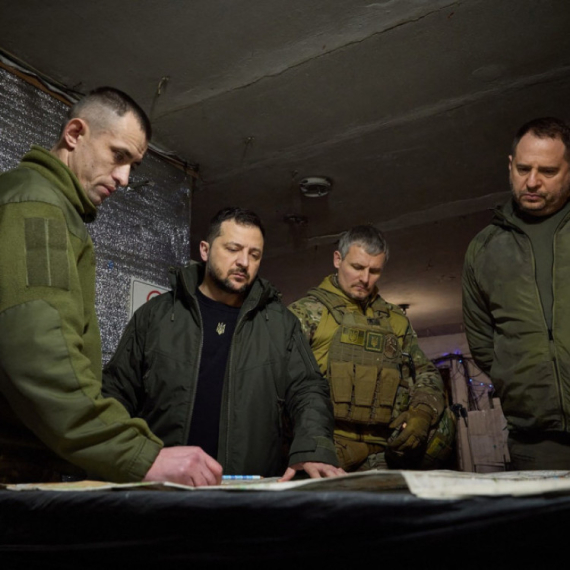



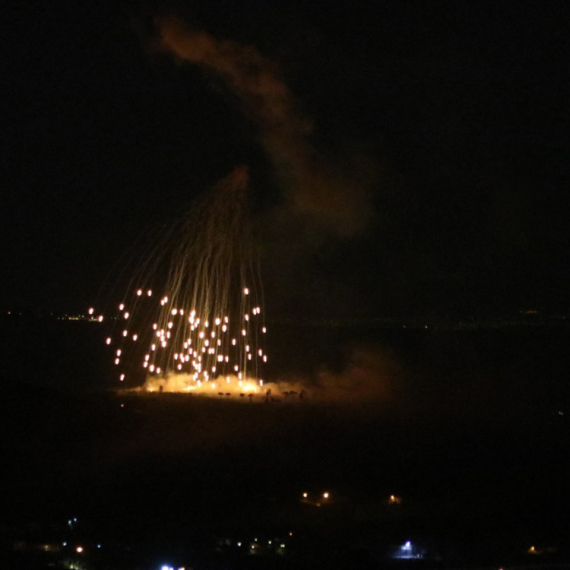
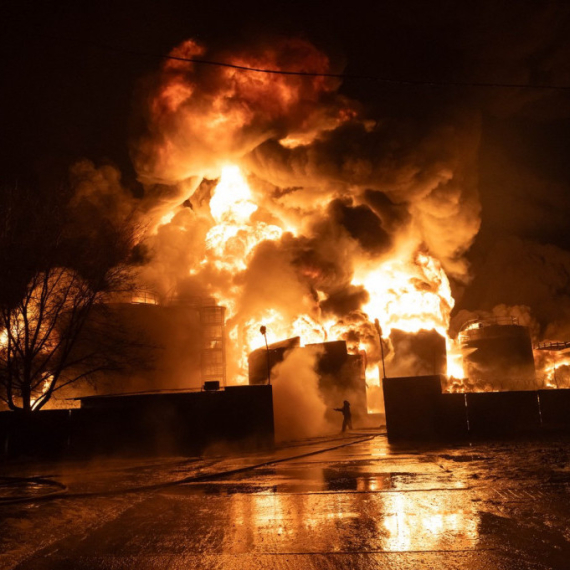
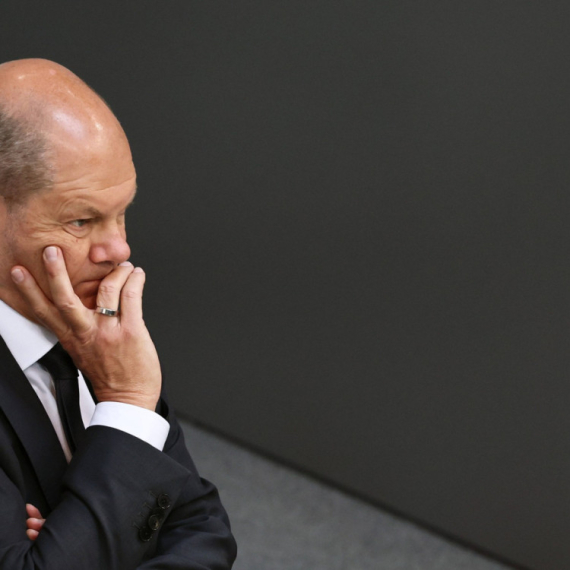
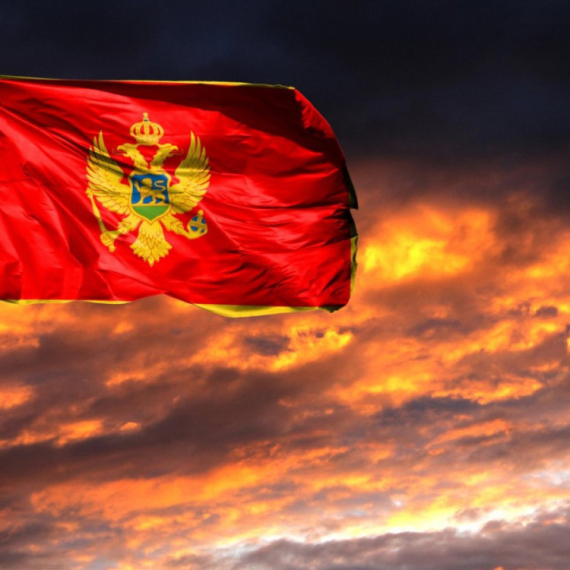









































Komentari 1
Pogledaj komentare